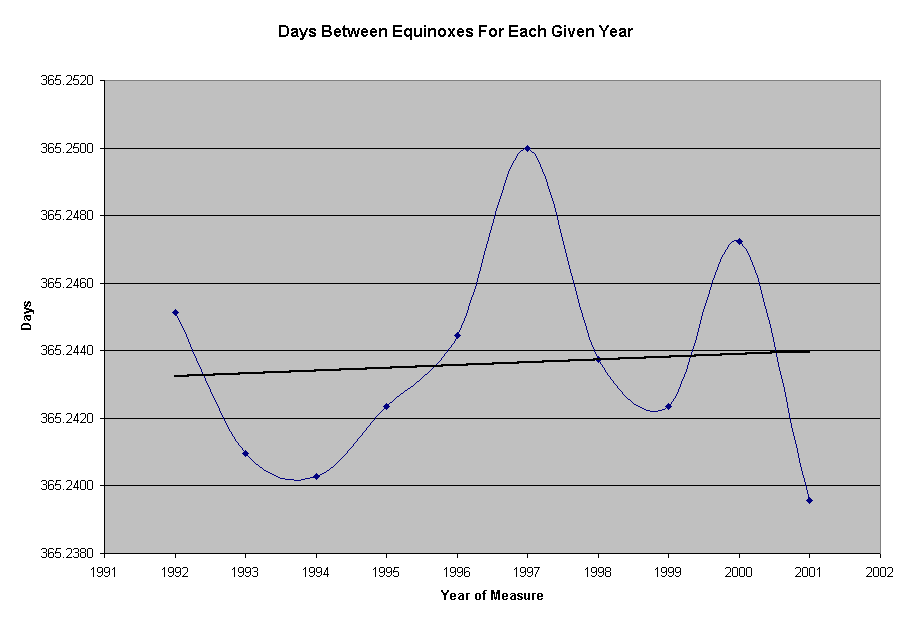
| |
 |
![]()
I also plotted the time between Equinoxes of each year. Bottom Line: Nothing is showing anything very definite as far as I can tell. One thing I don't know is - how often is the date on the aa.usno.navy.mil site in these tables updated to reflect actual measurements (if it ever really is) rather than predictions.
Perihelion occurs typically on January 2-4 for each year. Equinox will occur at the same UT time for everyone on the planet. Equinox occurs 1/4 of a rotation latter in March 20-21 and was reported to the nearest minute. Some people (about half) will be in the dark and some will be in the light at the time. The sun will only cross through the ecliptic twice a year, March and September of each year. It is daylight on the side earth that is facing the sun at the time of the crossing. Equinox date/time stamp does refer back to Greenwich Longitude which is a standard "place" so to speak, however, it could be dark or light on that side of the planet at the exact time of the Equinox. It is random. The facing or crossing over concept is called "Transit" in the terminology of Astronomy. For example a person standing on earth at a particular point has a transit of the sun at or around noon time (local time). This concept should not be confused with the sun crossing the equator which could be at any point on the equator each time it happens. A different name (equinox) was given to this condition of sun crossing the equator of earth to distinguish it from other concepts.
Jupiter has a year of 11.9 earth years and is probably the biggest influence. Other planets have different yearly cycles. If we assume each strong influence has it's own frequency. If we then take a bunch of different frequencies and add them up we get a kinky (pardon the non-technical term) type result that is hard to explain or easily understand. So to me without doing a mathematical analysis of a multi-body problem I can not say there is any problems with what I see. The chart below is the result of addition of multi-sine waves for many influences causing the kinky wave. Also the two are measured 4 months apart and have different influences in that time.
Offered by Mike.
